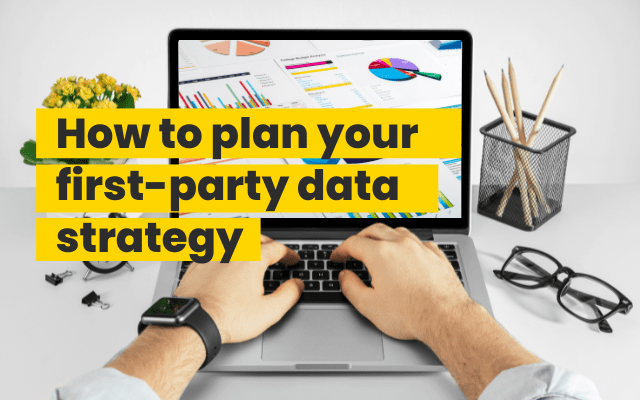TLDR: Marketing data centralization means pulling all your marketing data, from ads, analytics, CRM, and more, into one unified platform. It eliminates silos, improves accuracy, saves time, and empowers better, faster decision-making. In short, one source of truth means smarter marketing.
What you need to know
- What it is: Consolidating fragmented marketing data from multiple channels into one central hub.
- Why it matters: Eliminates manual reporting, fixes inconsistent data, and gives a complete view of performance.
- Key benefit: Major gains in reporting accuracy and operational efficiency.
- Main challenge: Breaking down silos between tools and teams.
- Best approach: Follow a clear 5-step process: assess, choose hub, integrate, govern, and visualize.

The problem is data is everywhere
If you’re a marketing leader, you’ve probably lived this: Google Analytics says one thing, Facebook Ads another, and your CRM something else entirely. By the time you’ve merged it all into a spreadsheet, it’s already outdated.
With nearly 10,000 marketing tools out there, it’s no wonder 90% of leaders say data silos are their biggest barrier to growth. The problem isn’t the lack of data, it’s that your data is scattered, inconsistent, and impossible to act on.
Marketing data centralization solves this by creating one source of truth, a single, always up-to-date home for all your marketing insights.
What is marketing data centralization?
Think of trying to navigate a city using a dozen different maps that all disagree. That’s what happens when marketing data lives in silos.
Centralizing data brings everything, ads, CRM, social, web analytics, into one unified system. It standardizes metrics, improves accuracy, and gives you the full customer picture. When data speaks the same language, every decision becomes clearer.
The 5-step guide to centralizing your data
Assess your infrastructure
Audit where your marketing data currently lives, like in CRMs, ad platforms, analytics tools, and so on. Identify what data truly matters (customer info, sales, conversions, spend), and define your goals. Don’t try to centralize everything at once, start with what drives results and focus on that.
Choose your central hub
Pick your “home base” for data. Cloud-based platforms are scalable and easier to manage, while on-premise systems offer more control. Data warehouses are great for structured reporting; data lakes handle both structured and unstructured data.
Platforms like ASK BOSCO® simplify this choice with cloud-based, marketing-focused solutions.
Integrate and clean your data
Get your systems talking. Use ETL (Extract, Transform, Load) or ELT (Extract, Load, Transform) pipelines. Clean up duplicates, fix naming inconsistencies, and standardize everything. ASK BOSCO® automates this with built-in integrations and data cleaning making the process easier for you.
Establish governance
Data governance ensures your data is secure, compliant, and accurate. Define who owns what, control access, and ensure compliance with GDPR and CCPA. Centralization makes managing permissions and privacy far simpler.
Visualize and empower
Now the fun part, turn your data into insights. Real-time dashboards and BI tools transform raw data into visuals your team can actually use. Self-serve analytics empowers marketers to explore and act on insights without waiting on the data team. ASK BOSCO® makes this simple with intuitive dashboards designed for marketers.
Why centralization changes everything
A single source of truth
Everyone, from an intern to the CMO, works from the same numbers. No more debating which dashboard is “right.” Finally, true cross-channel visibility.
Smarter decisions, better ROI
Centralized data powers predictive analytics and smarter forecasting. You can finally allocate budget with confidence and optimize campaigns in real time.
ASK BOSCO®’s AI forecasting achieves up to 96% accuracy, helping marketers plan ahead, not react late.
Faster reporting, stronger collaboration
Manual reporting becomes a thing of the past. Automated dashboards refresh in minutes, not days. When sales, marketing, and leadership all work from the same transparent data, collaboration improves and strategies align.
Common questions about data centralization
How long does it take?
It depends on your tools, data complexity, and resources. Start small, centralize your most critical data first. Platforms like ASK BOSCO® speed things up with automation and pre-built connectors.
How does ASK BOSCO® help?
We consolidate your data, ads, CRM, analytics, and more, into one platform with automated reporting, accurate forecasting, and competitor benchmarking. No coding required.
Is centralized data more secure?
Yes. It reduces duplication, enforces consistent access controls, and simplifies compliance. With encryption and multi-factor authentication built in, your data is safe.
The bottom line
Marketing data centralization is a game-changer. It shifts marketing from guesswork to precision, from siloed teams to unified strategy. In a world where data drives everything, the brands that unify and act on their data fastest will win.
Ready to stop reconciling spreadsheets and start scaling smarter? Explore ASK BOSCO®’s Reporting solutions for marketers and turn your data into your most powerful competitive advantage.




